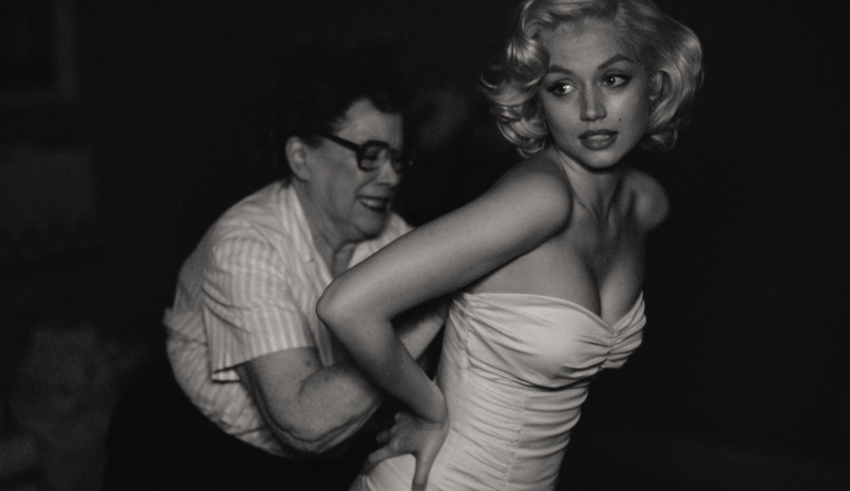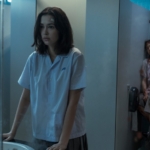
Courtney Stodden is the latest person to join the growing number of followers of Marilyn Monroe who are criticizing the film “Blonde” for its representation of the cherished Hollywood icon.
“I will not be watching,” the 28-year-old singer of “Boy Destroyer,” who identifies as non-binary and uses they/she pronouns, told Page Six in an exclusive interview at the premiere of “Drag: The Musical” on Thursday night in Los Angeles.
“As somebody who knows what it feels like to be exploited in a sexual way and then have people turn you into a joke when you are not a joke,” they continued, “I think diving into that is a little disrespectful because I understand what it is like to have people turn you into a joke when you are not a joke.”
After its release on Wednesday, the film directed by Andrew Dominik and featuring Ana de Armas in the role of Marilyn Monroe quickly climbed to the top of the movie list on Netflix.
The NC-17 drama, on the other hand, has sparked uproar among viewers who believe its depiction to be “cruel” and replete with misogynistic overtones.
“Given all the indignities and horrors that Marilyn Monroe endured during her 36 years, it is a relief that she didn’t have to suffer through the vulgarities of ‘Blonde,’ the latest necrophiliac entertainment to exploit her,” the New York Times film critic Manohla Dargis fumed in her review. “Blonde” is the latest necrophiliac entertainment to exploit Marilyn Monroe.
Keep Reading
The novel “Blonde” by Joyce Carol Oates, on which the film “Blonde” is based, is a fictional account of Marilyn Monroe’s life and the string of misfortunes she endured prior to her untimely death on August 4, 1962, at the age of 36. These misfortunes include being sexually assaulted as a child and being abused as a child.
“I would strongly encourage everyone not to watch the movie since it does not depict Marilyn Monroe, nor does it tell her narrative.” Stodden informed Page Six that the story was made up and that the purpose was to make her out to be someone that she was not.
“She never wished to be the girl that they’re portraying her as,” the narrator says.
Invoking Cara Crocker’s call from 2007 for an end to the social stigma attached to Britney Spears, the Monroe devotee said, “Like she said, ‘Leave Britney alone!’ — now it’s time we say, ‘Leave Marilyn alone!'”
Some viewers of “Blonde” have taken offense at a certain sequence in the film because they believe it to be “anti-abortion.”
It depicts Marilyn being coerced into her first abortion, screaming on the table that she’s changed her mind, and then she hallucinates finding a crying baby in her childhood home, which is engulfed in flames. Steph Herold, an abortion researcher at the University of California, San Francisco, tweeted: “It depicts Marilyn being coerced into her first abortion, screaming on the table that she’s changed her mind.”
Herold is of the opinion that the movie “Blonde” is “so exploitative,” “so sexist,” and “so anti-abortion.” Picture critic Justin Chang of the Los Angeles Times was of the same opinion, and he stated as much in his review, saying, “The film isn’t actually about Marilyn Monroe. It’s all about causing her as much pain as possible.”

























